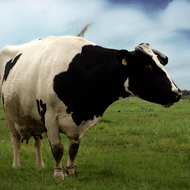Dramatic fall in outbreaks of lumpy skin disease

EFSA says the figures show vaccination is the most effective way to contain the disease.
There has been a dramatic decline in the number of lumpy skin disease (LSD) outbreaks in the Balkan region, according to the European Food Safety Authority (EFSA).
A new report shows outbreaks have fallen by 95 per cent, from 3,483 in 2016, to 385 in 2017.
Most of the outbreaks in 2017 were reported in areas of Albania where the vaccination programme has not yet been completed. Only a few outbreaks occurred elsewhere; there were two in Greece and four in the former Yugoslav Republic of Macedonia.
EFSA says the figures show vaccination is the most effective way to contain the disease.
Despite these positive findings, EFSA vet Alessandro Broglia warned: “Even if the number of outbreaks has decreased significantly, the disease has not been eliminated from the region yet and therefore we need to remain vigilant.”
The report also analysed risk factors for the spread of LSD in south-eastern Europe. One of the factors responsible for its spread is an increase in the number of insects that transmit it, caused by warmer weather.
Experts found Greece is six times more likely to see infection in farmed animals that have access to outdoor space, compared to those kept indoors, due to increased exposure to insects.



 The Federation of Independent Veterinary Practices (FIVP) has announced a third season of its podcast, Practice Matters.
The Federation of Independent Veterinary Practices (FIVP) has announced a third season of its podcast, Practice Matters.